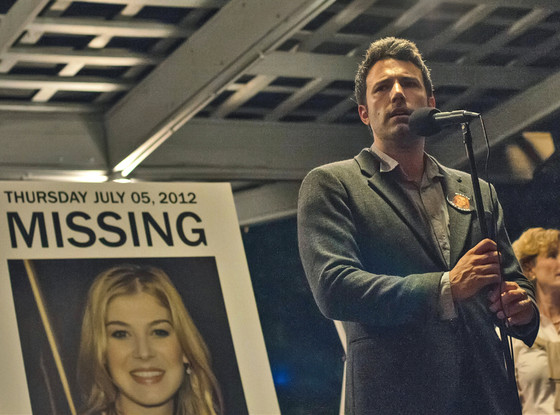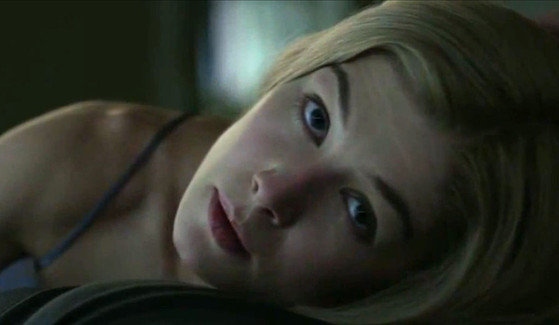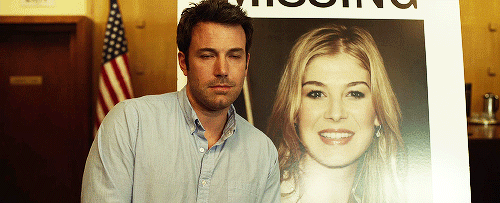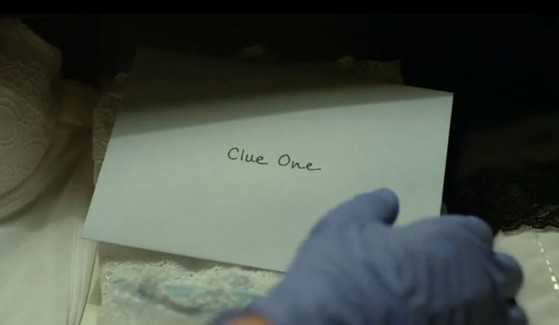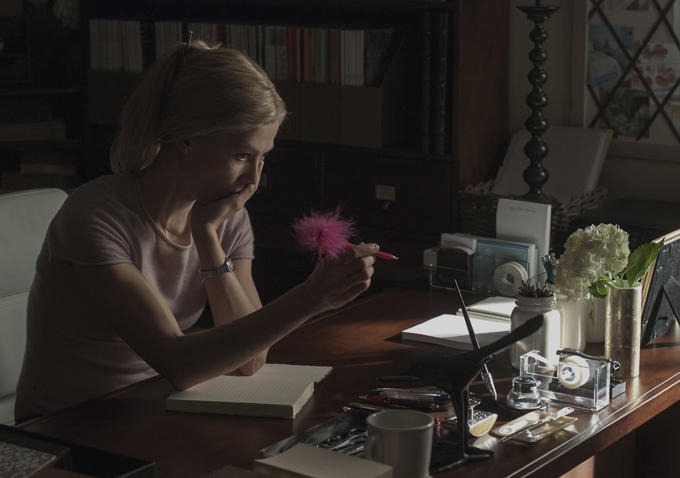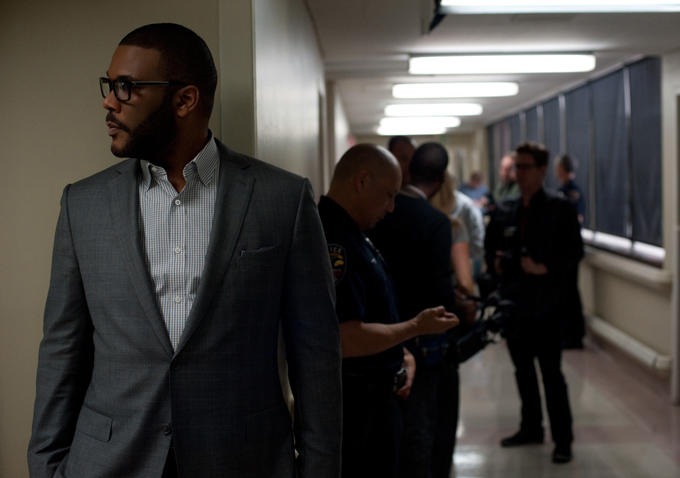David Fincher is one of the most celebrated filmmakers of the modern era, and while I’ve always considered myself a fan of his work, it’s only recently that I’ve begun to understand why. I’ve loved Se7en, Fight Club and The Game for years but often for difficult-to-articulate aesthetic reasons. A big part of the change can be attributed to two things: finally seeing Zodiac last year, and watching Tony Zhou’s video essay on Fincher from his Every Frame A Painting series. Having such a simple breakdown of the man’s artistic habits really opened up my mind to what it is I enjoy about his work. See, Fincher doesn’t necessarily dwell on themes that resonate with me emotionally (not always, anyway), but his dedication to the craft of filmmaking, the particular way he chooses to compose and juxtapose images to tell a story, is incredibly striking to me. He has an eye and a sensibility that seem to elevate anything he does to a level of style and even substance that few of his peers can match. He took Aaron Sorkin’s gluttonously talky script for The Social Network, a piece that could have been a limp impression of the Pirates of Silicon Valley TV movie, and sold it as a moody rumination on the tragically flexible nature of friendship. His obsessive attention to detail has the transformative ability to heighten seemingly any material through sheer force of will.
This is probably the entire reason I even went to see Gone Girl. I haven’t read the book, nor was I previously aware of its existence. The logline sounded like it could be the most boring, piece of shit, procedural of the year in the wrong hands, but something about seeing Fincher get to meticulously box Ben Affleck into corners as he attempts to evade suspicion that he’s murdered his own wife got my goat. Going into the film relatively blind turned out to be a Godsend, as I willfully suspended my usually critical eye and let the film’s startling machinations maneuver me from plot point to plot point, with ruinous emotional revelations peppered throughout like punctuation marks. If you are reading this review to find out whether you should see this film, I’ll skip to the end and say, “Yes, fucker. Go now.” If you need more convincing, I’ll go on a little more, but there is virtually no way to get into the meat of this film without *SPOILERS* so, when we get to that point, I’m going to just ask people who haven’t seen the film yet to leave the room, like back in health class when the girls stayed to talk about menstruation and the boys went outside to discuss wet dreams.
Gone Girl is an adaptation of Gillian Flynn’s third novel of the same name, scripted by the writer herself, which is refreshing to see. Novelists don’t always make strong screenwriters, but Flynn avails herself quite well, finding a suitably cinematic structure and form for a story that’s pretty tailor made to the world of prose. Gone Girl is the story of Nick Dunne (the best role Ben Affleck could ever possibly hope for in his fucking life) and Amy Elliot-Dunne (a role Rosamund Pike plays quite well, but is perhaps miscast), a couple who’ve been married five years. The film’s first half is split between dueling narratives. Amy goes missing the morning of their fifth anniversary and there’s enough evidence to suggest she’s been murdered. Naturally, the primary suspect is Nick himself. While his hometown and the media begin to turn on him as his every move is placed under a microscope, the film cuts back and forth with the evolution of their relationship, as depicted in Amy’s diary.
Tonally, it feels like you’re watching Blue Valentine, but if the present day scenes were something out of a Dennis Lehane novel, as we dramatically jump from very charming, near romcom meet-cute tropes to the uneasy suspense of the present day. As what appears to be the facade of the decent man Nick purports to be begins to erode in the present day, the diary scenes veer from the charming effervescence of their courtship to a darker, more troubling era of their marriage. Even the early romance feels sullied, off in some way. The film’s opening shot is the back of Amy’s head, as Nick caresses it and wonders, aloud, in voice-over, about cracking her skull open to find out what’s inside. That bit of business alone, coupled with the at-times flat, discomfiting delivery of what must seem on the page as very bubbly dialogue, colors those flashbacks with a sense of dread.
It’s here that the film feels like Affleck’s picture. Amy exists solely as this distant ghost, present only in the private thoughts of her diary writ large as voiceover narration and the “clues” she’s left behind for Nick (part of their anniversary ritual is a romantically curated scavenger hunt, crafted by Amy). Nick Dunne, a mediocre, yet charismatic man who writes for a men’s magazine, is a perfect portrait of a certain kind of guy: the ineffably Ain’t Shit bro. Affleck imbues something of a stereotype with a lived in sense of honesty, despite his character’s blatant duplicity. Fincher has a blast with Nick being picked apart by the police (Kim Dickens and Patrick Fugit) and a surly, Nancy Grace stand in (Missi Pyle), and Affleck, to his merit, encapsulates everything about the pressure cooker of toxic masculinity, a tireless mask of genial cordiality barely concealing a mean streak as pathetic as it is frightening. I’m convinced Affleck landed the role because he has a severely punchable face and looks like the kind of guy who would kill his wife and then lie about it on television.
Rather than playing a stock villain, though, Affleck feels relatable and complicated in a way usually reserved for navel-gazing indie dramas, but piped into the form of the kind of straight forward crime thriller you find in grocery stores. The way Fincher chooses to frame Nick, visually, is a fantastic extension of this already laudable performance. In medium shots with his twin sister Margot (the amazing Carrie Coon), he feels like just a guy in over his head. As Amy’s diary entries begin to turn sour, he stalks the periphery of the frame, like a waiting specter, hovering over Amy wherever she hides. Affleck’s Nick becomes a cypher for any and all of your feelings on men in general, and watching him squirm and writhe makes for great cinema.
Of course, that is only one half of the story. Honestly, if this movie was just Shitty Husband Unravels As Everyone Discovers He’s A Piece of Shit/Maybe Murderer, it’d be worth the price of admission, but, about halfway through the film, we arrive at a midstream twist placed much like the one in the middle of Vertigo to shift gears in the latter half.
*HEAVY FUCKING SPOILERS BENEATH THIS PICTURE OF TYLER PERRY*
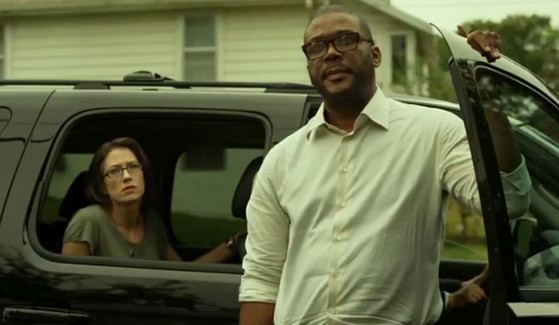
TYLER PERRY DOESN’T WANT YOU TO RUIN THE MOVIE FOR YOURSELF UNLESS YOU DON’T CARE IN WHICH CASE, HEY, YOU KNOW, KEEP READING
.
.
.
.
.
I haven’t read the book this film is based on, but I definitely knew Amy wasn’t really dead. I prayed the twist wasn’t going to be something stupid involving ghosts or dreams, and the revelation that Amy had in fact ran away as part of her massive plan to frame her cheating, lying husband for her imaginary murder was great. I don’t think a two hour movie about a guy maybe killing his wife that ends with “yes he killed his wife” or “no he didn’t” can work unless something else is at play, and despite some colorful red herrings with Nick’s father and Neil Patrick Harris as a jilted ex, nothing really supported a logical outcome to the murder-y mystery. Also, Nick and Amy’s cat is shown prominently in the frame throughout many of the scenes in the house, like the foreboding trees who bore silent witness in Prisoners, and there’s a particular shot with Nick and the cat where, like, hey, Nick is a shitty dude, but I didn’t buy him lovingly interacting with a cat that must have watched him kill his wife, you know?
When it really starts to feel like a David Fincher film is when we meet the “real” Amy, who, in voice over, explains how she framed Nick and why, set to the “Cool Girl” monologue from the book. I suspected the anniversary clue hunt Amy put together was going to turn out to be a ploy to shake Nick out of the marital malaise he was in, sort of like Michael Douglas’ birthday gift in The Game, but turning into a taunting “fuck you” cherry on top of the “you’re going to fry for fake killing me” milkshake was a pleasant surprise.
Rosamund Pike plays Amy with an icy resolve that she’s very, very good at. She reminds of January Jones, but a lot less basic, and with way more range. Not having read the book and thinking it was written by a man, I felt like her entire character was penned by an angry dude sick of his marriage who wanted to turn his wife into the ultimate bogeyman. I read up on Gillian Flynn in interviews and the kind of femme fatale she wanted Amy to be (and how the novel presents a more nuanced take) and there’s definitely a disparity on the screen. The film’s twin halves almost feel like they deliver two Amys and not just in the sense that some of what we see in her diary flashbacks is totally fabricated, but from a characterization perspective.
The Amy we first meet is presented as a porcelain statuette that Nick wins for being clever and assertive in just the right measure, a trust fund fed “difficult” Ivy Leaguer who is off-putting and hard to be around, but is ultimately sympathetic. Her backstory as the subject of her mother’s popular children’s series (“Amazing” Amy) is deeply fascinating, the idea of a woman who’s grown up in the shadow of her mother’s fictitious depiction of herself giving way to a woman rebelling against her own husband’s fictitious image of her. Hearing from her point of view for the first time, we see how the strain of moving to Nick’s hometown from New York affected her, and how his infidelity hurt her, and we get a strong sense that the two, narratively, are on an even playing field. Yes, it’s fucked up to frame your husband for your own murder, but it’s also fucked up to cheat on your wife, so there’s a tête-à-tête that makes the movie seem like a true two hander. You can view it as a grim, cynical take on The Lady Eve, as two people hurt one another in a game of emotional one-upsmanship, and maybe that’s how it played in the novel, a sort of neo-noir metaphor for the mutually assured destruction of long term relationships, but as a film, it becomes something a little harsher.
The Amy of the screen becomes such a frightening, calculating monster, as she murders her ex-boyfriend and is shown to have faked rape (twice.) The playing field becomes less like a back and forth and more “Amy is irredeemably evil and Nick is cruddy, but decent.” It’s refreshing to see a female villain given so much agency and versatility, but the histrionics make the movie feel more like Fatal Attraction, which would be fine if it weren’t ultimately leading to a conclusion it builds to. I can’t help thinking someone a little more in line with the “cool girl” aesthetic the book espouses would have made for a more dynamic Amy, but Pike really does do some fantastic work here, particularly in the film’s final third, as Fincher twists the narrative, visually at least, to feel darkly comic. The entire affair reeks of the kind of malignant wit Heathers screenwriter Daniel Waters was so famous for.
There’s some troubling, debatable things to infer on modern gender relations from the film, but overall, it’s a sharp dissection of marriage played out first as a thrilling mystery, then as an incisive black comedy. The film’s twists and turns and moody exploration of themes satisfied me more than enough to make up for an ending I wasn’t particularly pleased with. This is why Fincher works so well. He and his cast truly elevate the material so high it’s bursting at the seams, meaty and begging to be heartily consumed. It doesn’t pretend it’s some prestige picture Oscar bait, confident in its genre origins, like a Michelin star chef sprucing up a fatty burger with fries.
As a bonus it presents us with the best Tyler Perry performance ever. I would love an entire franchise about his high powered defense attorney, Tanner Bolt, and I’d love it now.
Gone Girl is now playing in theaters nationwide.

